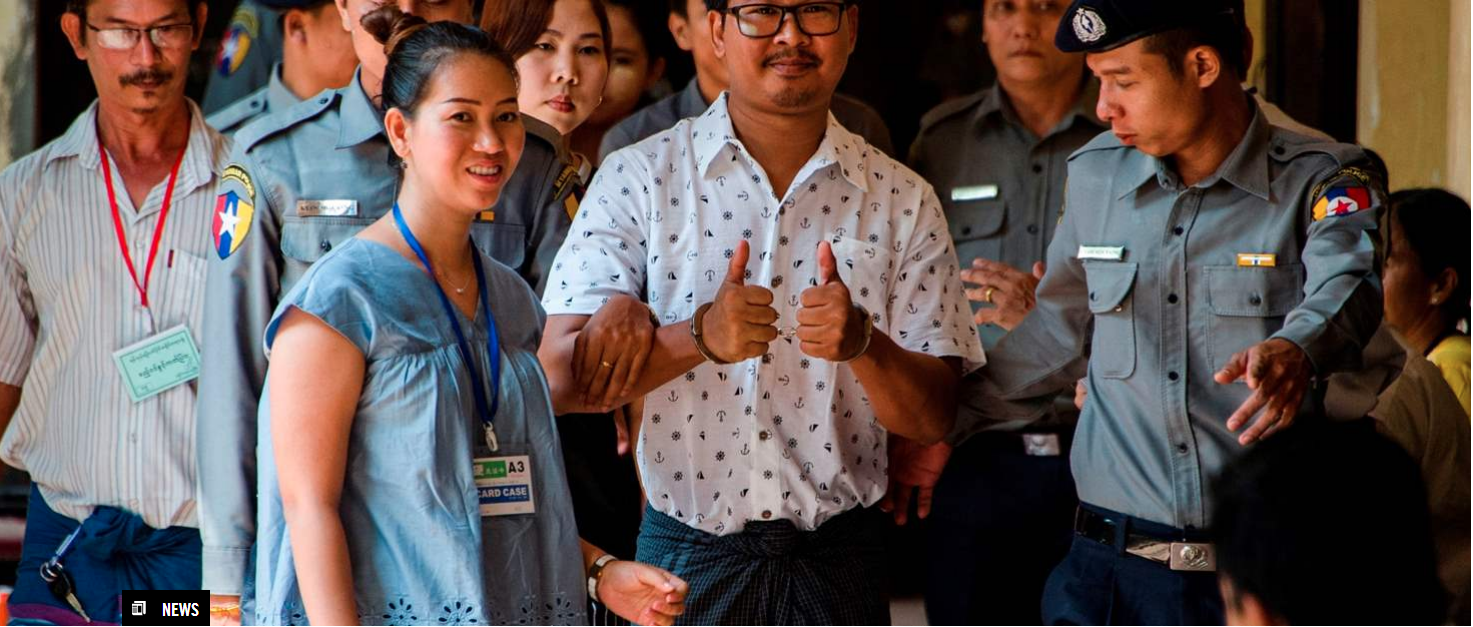Responding to the decision by Myanmar’s Supreme Court to uphold the conviction and seven year prison sentence of Reuters journalists Wa Lone and Kyaw Soe Oo, Nicholas Bequelin Amnesty International’s Regional Director for East and Southeast Asia said:
“The Supreme Court’s rejection of Wa Lone and Kyaw Soe Oo’s appeal compounds a grave injustice and marks a dark day for press freedom in Myanmar. This case shows the authorities’ resolve to ensure there can be no independent reporting on the military’s atrocities in Rakhine State – even at the cost of debasing the country’s judicial system.
“Wa Lone and Kyaw Soe Oo are not isolated cases. In recent weeks, we have seen a disturbing surge in the number of people being arrested on politically motivated charges, most of them for criticism of the military.
“Ahead of the 2020 general election, the international community must put much more pressure on the government to immediately and unconditionally release all prisoners of conscience and amend or repeal the oppressive laws that are being used to curtail freedom of expression.”
Background
Reuters journalists Wa Lone and Kyaw Soe Oo were arrested in Yangon, on 12 December 2017. At the time, the two were investigating a massacre of 10 Rohingya men and boys committed by members of the Myanmar security forces in northern Rakhine State, for which seven Myanmar soldiers were later jailed by a military court.
The two journalists were charged with breaching the Official Secrets Act and on 3 September 2018 sentenced to seven years in prison. An appeal to the Yangon High Court was rejected in January 2019. On 16 April 2019, Wa Lone, Kyaw Soe Oo and their colleagues were award the 2019 Pulitzer Prize for international reporting.
Recent weeks have seen an alarming spate of politically motivated arrests and detention. These include:
On 12 April, film director and a founder of the Myanmar Human Rights, Human Dignity International Film Festival Min Htin Ko Ko Gyi was detained in connection with Facebook posts critical of the military and the 2008 Constitution;
On 19 April, authorities announced they were opening a case for “online defamation” against Ye Ni, the editor of the Burmese section of The Irrawaddy for an article which the Myanmar military deemed “one-sided”;
On 22 April a group of five people was taken into custody and are facing charges of defamation and making “statements conducing to public mischief” after they live-streamed a satirical Thangyat performance mocking the Myanmar military during Myanmar’s new year festival.
These arrests are made possible by a range of repressive laws, which have for years been used to silence critical voices. To date, the NLD-led government – and parliament – has largely failed to take action to repeal or amend those laws that are incompatible with international human rights laws and standards. Instead, both the government and the military have actively used such laws to curb the human rights to freedom of expression, association and peaceful assembly.
For more information or to arrange an interview, please call:
Lucy Scholey, Amnesty International Canada (English), + 613-744-7667 ext. 236, lscholey@amnesty.ca





















